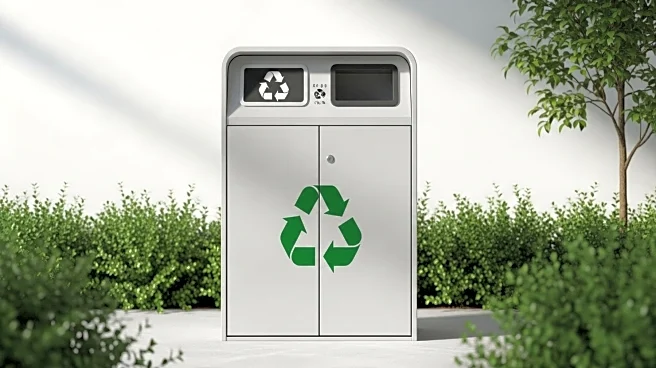What's Happening?
Stanley 1913, a company known for its durable reusable drink containers, has launched a new 'Take Back' program aimed at enhancing its sustainability efforts. The program allows customers to return used Stanley products for free, with the company covering shipping costs. Participants receive a $5 credit for future purchases and a $5 donation is made to Ocean Conservancy for each returned item. The initiative is part of Stanley's broader commitment to sustainability, which includes using 65% recycled materials in its products and ensuring suppliers use renewable energy. The program seeks to recover and recycle materials like metal and plastic from returned items, promoting a circular economy.
Why It's Important?
The 'Take Back' program represents a significant step in the sustainability movement within the consumer goods industry. By facilitating the recycling of used products, Stanley is addressing the growing consumer demand for environmentally responsible practices. This initiative not only reduces waste but also supports the market for recycled materials, potentially influencing other companies to adopt similar practices. The program could enhance Stanley's brand reputation among eco-conscious consumers, driving sales and fostering customer loyalty. Additionally, the partnership with Ocean Conservancy highlights the company's commitment to environmental causes, potentially attracting positive attention from stakeholders and environmental groups.
What's Next?
Stanley plans to monitor the adoption of the 'Take Back' program closely, as it is relatively new in the industry. The company is in a test-and-learn phase, aiming to understand consumer behavior and refine the program based on feedback. Future developments may include expanding the program's reach or incorporating additional sustainable practices. Stakeholders, including environmental organizations and consumers, will likely watch the program's progress, potentially influencing broader industry trends. Stanley's commitment to sustainability may inspire other companies to implement similar initiatives, contributing to a larger shift towards eco-friendly business practices.
Beyond the Headlines
The 'Take Back' program could have deeper implications for the consumer goods industry, particularly in terms of ethical and cultural shifts. As consumers become more aware of environmental issues, companies may face increased pressure to adopt sustainable practices. This program could serve as a model for other businesses, encouraging a shift towards circular economies and responsible consumption. The initiative also highlights the importance of corporate responsibility in addressing global challenges like pollution and resource depletion, potentially influencing public policy and industry standards.











